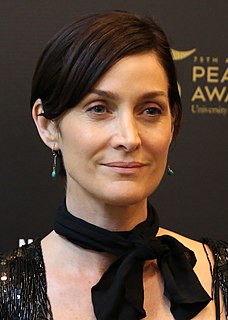A Quote by Roy Lichtenstein
People think one-point and two-point perspective is how the world actually looks, but of course, it isn't. It's a convention.
Related Quotes
The perspective of eternity is not a perspective from a certain place beyond the world, nor the point of view of a transcendent being; rather it is a certain form of thought and feeling that rational persons can adopt within the world ... Purity of heart, if one could attain it, would be to see clearly and to act with grace and self-command from this point of view.
Bypasses are devices that allow some people to dash from point A to point B very fast while other people dash from point B to point A very fast. People living at point C, being a point directly in between, are often given to wonder what's so great about point A that so many people from point B are so keen to get there and what's so great about point B that so many people from point A are so keen to get there. They often wish that people would just once and for all work out where the hell they wanted to be.
In the same way that when the car got going, people thought it would be an electric car, people thought it would be a steam car. Actually, the dark horse in that race was internal combustion, but because of the energy density of gasoline and discovery of oil in large amounts at that point in first Pennsylvania and then Texas, it won out over those other two, to the point that those other two are actually viewed as obscure footnotes in history.
I always believed that social science was a progressive profession because it was the powerful who had the most to hide about how the world actually worked and if you could show how the world actually worked it would always have a de-masking and a subversive effect on the powerful. I don't think that's quite true, but it seems to me it's not bad as a point of departure anyway.
The first commandment for every good explorer is that an expedition has two points: the point of departure and the point of arrival. If your intention is to make the second theoretical point coincide with the actual point of arrival, don't think about the means -- because the journey is a virtual space that finishes when it finishes, and there are as many means as there are different ways of 'finishing.' That is to say, the means are endless.
It's funny, but thinking back on it now, I realize that this particular point in time, as I stood there blinking in the deserted hall, was the one point at which I might have chosen to do something very much different from what I actually did. But of course I didn't see this crucial moment for what it actually was; I suppose we never do. Instead, I only yawned, and shook myself from the momentary daze that had come upon me, and went on my way down the stairs.








































